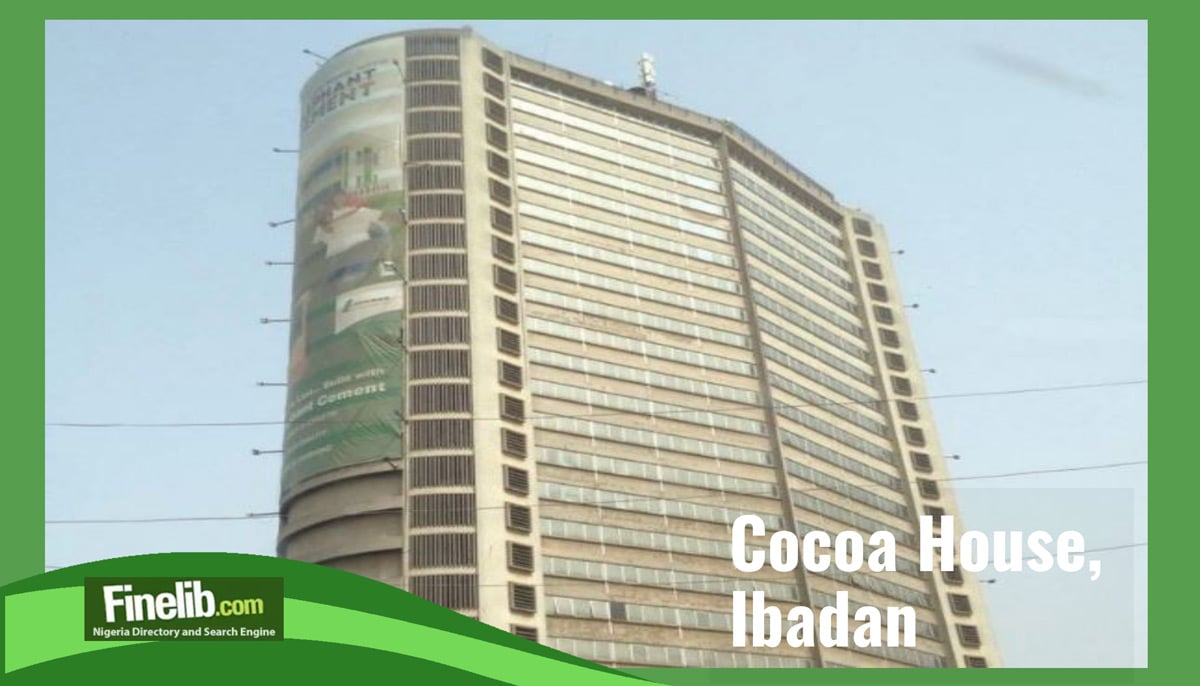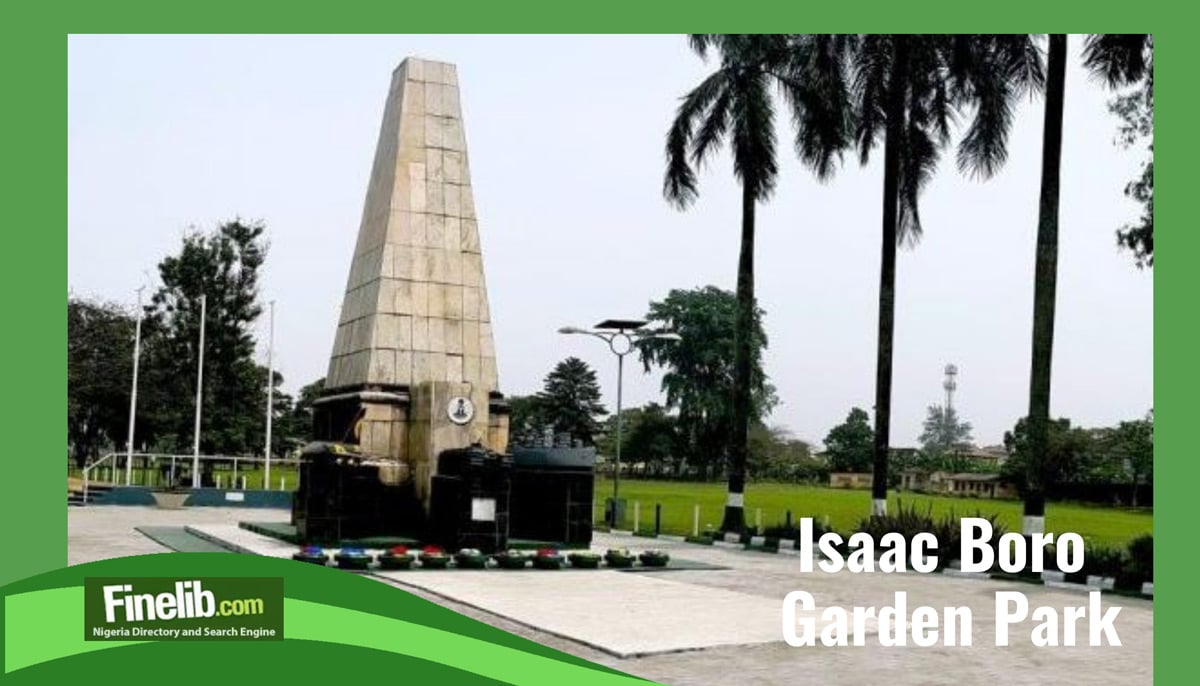Attractions, Activities and History of Cocoa House Ibadan

If you are looking for a spot in Nigeria that blends rich history with a touch of awe, Cocoa House in Ibadan is a place you cannot skip with your mates or kin. Standing tall in the bustling Dugbe district of Ibadan, Oyo State, this 26 storey skyscraper stretches 105 metres into the sky, a proper monument to Nigeria’s cocoa fuelled past and architectural grit.
Known to locals as “Ile Koko” or simply “Cocoa House,” it was once the tallest building in West Africa, a title it held from its completion in 1965 until 1979. Whether you are an Ibadan resident proud of your city’s landmarks or a visitor keen to explore Nigeria’s iconic sites, this guide spills the full gist on its history, attractions, and why it remains a must visit gem in the southwest. Let’s climb into this towering tale and see what makes it a big deal for all.
How It Came to Life
Cocoa House owes its roots to the vision of Chief Obafemi Awolowo, who, as Premier of the Western Region in the 1950s, saw cocoa as Nigeria’s golden ticket to growth beyond colonial shadows. With cocoa beans raking in big naira as a top export, he pushed for a skyscraper to house the Western Nigeria Development Corporation, funded entirely by those sweet proceeds construction kicked off in 1962 under his watch.
The building wrapped up in 1964 and was officially opened on 30 July 1965 by Premier Samuel Ladoke Akintola, a handover from Awolowo’s era, with the Italian firm Cappa and D’Alberto laying its bricks and beams. At 105 metres, it claimed the crown as West Africa’s first skyscraper, a proud feat born from Nigeria’s farming hustle originally dubbed “Ile Awon Agbe” (House of Farmers) before settling on “Cocoa House” to honour its cocoa cash roots. It is a story of Nigeria turning soil into steel, standing tall in Ibadan’s heart.
Where It Stands
Cocoa House looms large in Dugbe, a lively commercial hub in Ibadan, Oyo State, roughly 130 kilometres northeast of Lagos and a stone’s throw from the city’s old quarters like Mapo and Oke Aremo. It is surrounded by the buzz of markets, banks, and eateries—think Dugbe Market just across the road—making it a central pillar in Ibadan’s daily grind.
Getting there is no big wahala from Lagos since you can take a train to Ibadan directly. You can also hop a bus from Oshodi to Ibadan’s New Garage for about 2000 naira, a 2 to 3-hour ride, then grab an okada or keke to Dugbe for 300 naira more.
If you are in Ibadan, a taxi from Bodija or Sango costs around 1000 naira straight to Cocoa House’s gates or drive via Agodi Road and watch for its towering frame. It is Nigeria’s urban jewel, easy to spot yet steeped in history.
What Makes It Special
Step up to Cocoa House, and you are greeted by its bold white and brown facade an 80 foot wide slab soaring 26 floors, a sight that screams Nigeria’s early architectural ambition. Inside, the ground floor buzzes with a shopping mall, stalls hawking ankara fabrics, books, and local crafts, while a restaurant dishes out jollof rice, amala, ewedu, pounded yam, and cold drinks to fuel your visit.
The real star is the observation deck on the top floor. Climb up (or take the lift), and you get a sweeping view of Ibadan’s rusty rooftops, seven hills, and sprawling streets stretching far into Oyo State. A mini museum sits on the 24th floor, too.
Part of the Odu’a Museum and Hall of Fame, opened in 2013 by Professor Wole Soyinka, is packed with cocoa farming relics, old photos, and the tale of how Nigeria’s cocoa boom built this tower. You can peek at the offices of banks and law firms, which Odu’a Investment Company Limited calls home, blending past glory with today’s hustle.
Outside, a cocoa tree planted by the fountain nods to its roots, while the Kokodome pool and bar next door add a splash of fun for those who fancy a dip or a drink. It is not just a building but a living slice of Nigeria’s story, pulling you in with every floor and view.
Why Nigerians Hold It Dear
Cocoa House has a deep pull for Nigeria’s people, especially in Oyo State, where it stands as a proud marker of Ibadan’s nickname “the pacesetter” for blazing trails like this first skyscraper. Families and students swarm it during weekends or festive times like Sallah, kids gawking at the height while elders share tales of its cocoa funded glory days.
Tourists love it too, as it is a Nigerian icon that feels real and rooted, not some flashy gimmick, with its view and museum offering a window into the country’s farming past. For locals, it is a daily sight that office workers grab lunch at the base; shoppers haggle in the mall, making it a living hub, not just a relic. It is a cherished piece of Nigeria’s soul, tying yesterday to today.
Getting There and Making It Work
Reaching Cocoa House is a doddle if you are in Ibadan. A taxi from Oke Ado or Ring Road costs about 1000 naira, or a keke from Mokola runs 500 naira straight to Dugbe’s core. From Lagos or Abuja, a 2—to 4-hour bus to Ibadan’s Sango Park takes 2000 to 3000 naira. Then, hop an okada for 300 naira to the tower’s doorstep.
It is open daily from 8 a.m. to 6 p.m., with entry to the public areas, free observation deck, and museum tours cost 500 naira per head, payable at the gate, so bring cash, as no POS machines linger here. Wear comfy shoes.
The stairs to the top are a climb if lifts are down, and the dry season from November to March is best, with clear skies showing off Ibadan’s sprawl. Book a guide ahead via Odu’a Investment (+234 803 407 1555). If you want the full scoop, it will keep it smooth.
Why It Counts for Nigeria
Cocoa House is more than a tall building; it is a cornerstone of Nigeria’s economic and cultural tale. It was born from cocoa’s golden era in the 1960s when farming ruled the roost. Cocoa House pumps naira into Ibadan’s flow, which visitors spend on tours, food, and crafts, boosting local vendors while keeping the tower ticking as a business hub.
For Nigeria, it is a proud flex, a skyscraper dreamt up by Awolowo’s vision, built with cocoa cash, showing the world our knack for big ideas from humble roots. It inspires kids to see a past where Nigeria led, and adults feel the weight of progress while holding our heritage high. It is a living link to our farming days and a beacon for tomorrow.
Tips to Enjoy Your Visit
Swing by at 8 a.m. to dodge crowds, pack water, suya, or puff puff, though the restaurant has grub if you run low, and wear trainers for the climb or stroll around Dugbe. Bring 500 naira cash for the deck and museum haggle a bit with vendors for snacks to save some naira—and sort a guide for 1000 naira if you want extra gist.
Keep it clean, do not toss rubbish, and watch your step on the top floor if heights spook you; the view is worth it. With family, picnic by the fountain, or let kids roam the mall, it is a full-day vibe that does not dent your pocket. Snap pics, but ask staff first. Some spots are off-limits.
Challenges and Bright Futures
Cocoa House is not without its hiccups; lifts can stall, leaving you puffing upstairs, and tight funds mean some floors look worn and are craving a fresh lick of paint. Crowds clog Dugbe on weekends, and parking gets tricky rainy season muddies roads too, slowing your roll to the gate.
Hope shines through the 2019 revamp by Odu’a Investment, which fixed the roof and wiring. There is talk of more ways to polish lifts or add signs. If Nigeria pumps in the effort, Cocoa House could glow as a top draw, pulling bigger crowds to Ibadan’s historic core. It is a giant with grit, set to rise higher.
The Bigger Picture
Cocoa House is Nigeria’s towering heartbeat in Ibadan, where Cocoa Dreams built a skyscraper that echoes our past and lights our future. As Nigeria strides into 2025, it stands as a beacon of progress and pride, blending farming roots with a modern buzz.
It is not just Oyo’s pride. It is a nod to Nigeria’s richness, showing the world we have landmarks worth shouting about. From its 1965 birth to its lively now, it is a tale of vision, hustle, and heritage that keeps Nigeria shining. It calls you to climb, see, and cherish what makes us unique.




